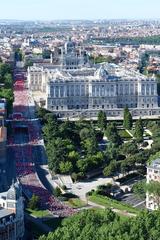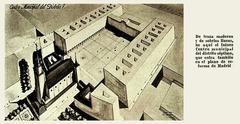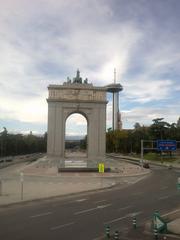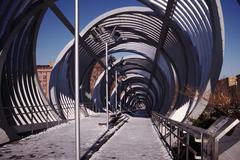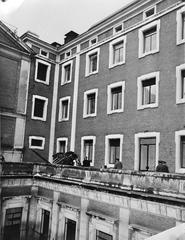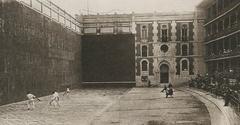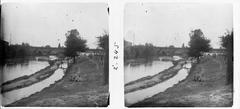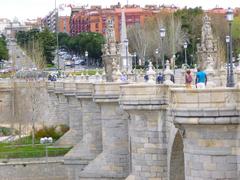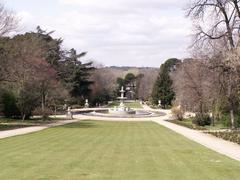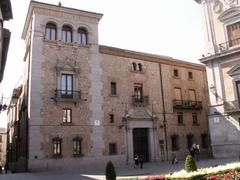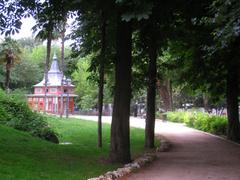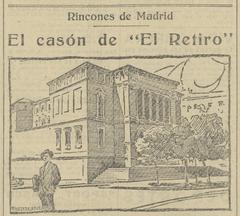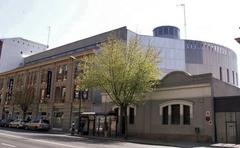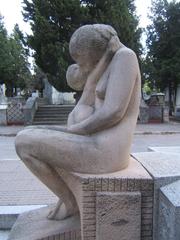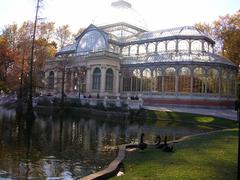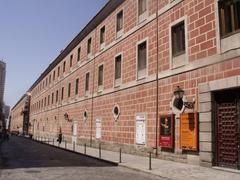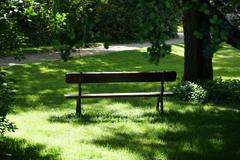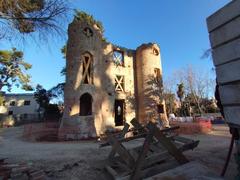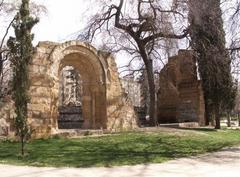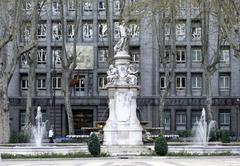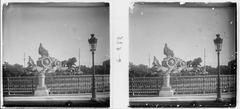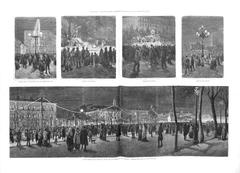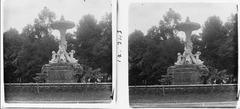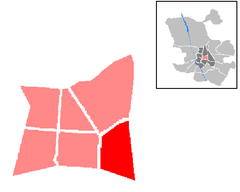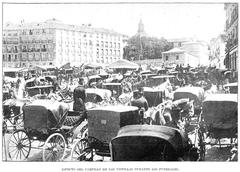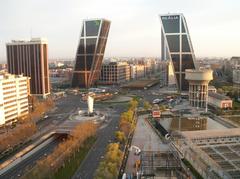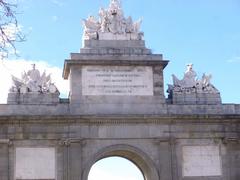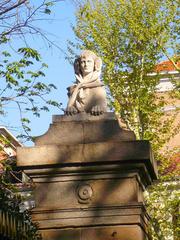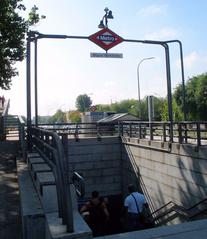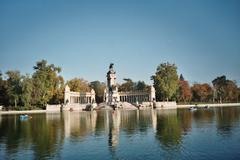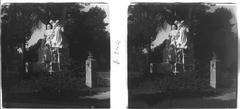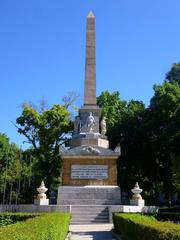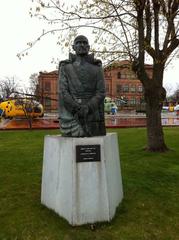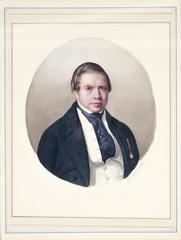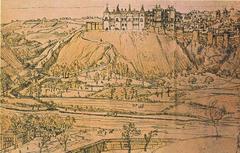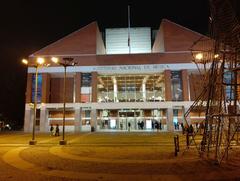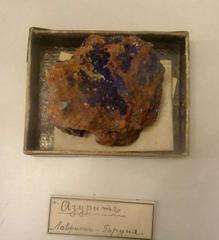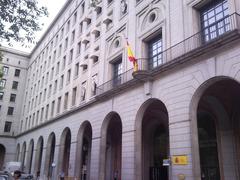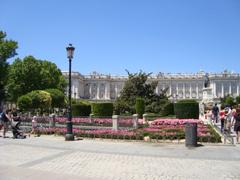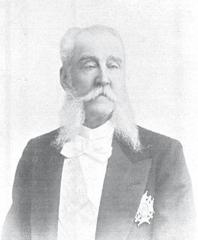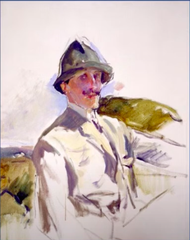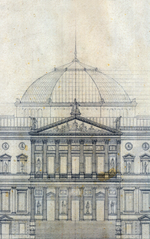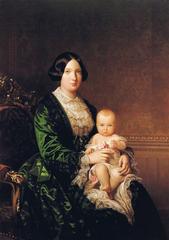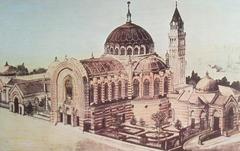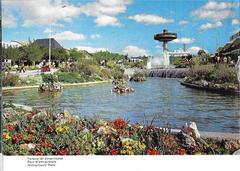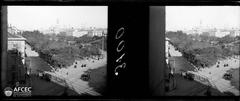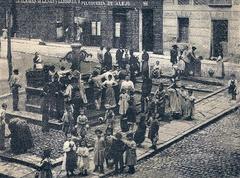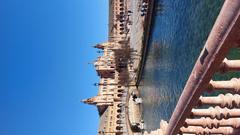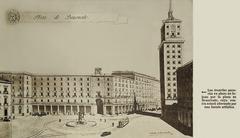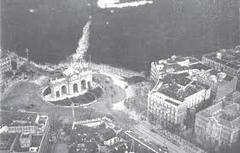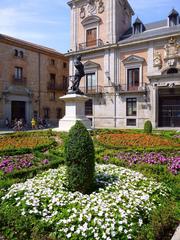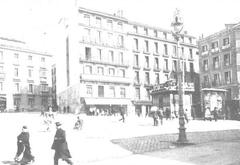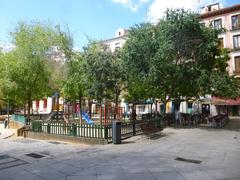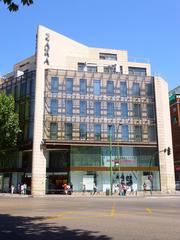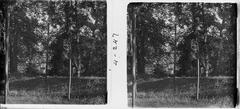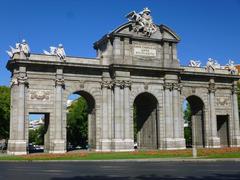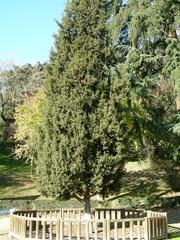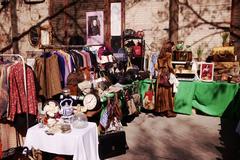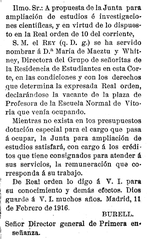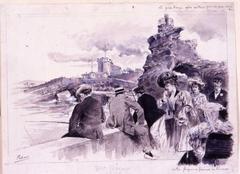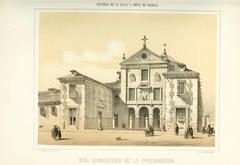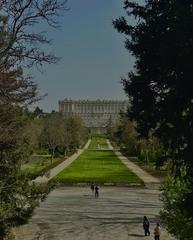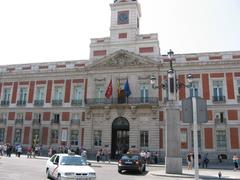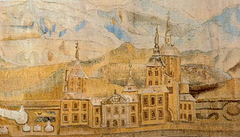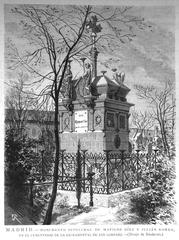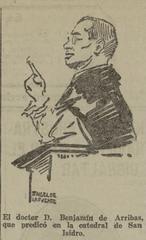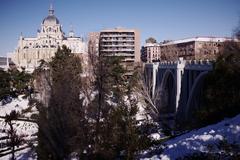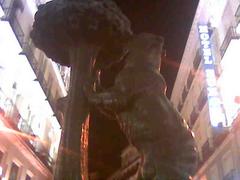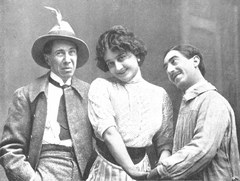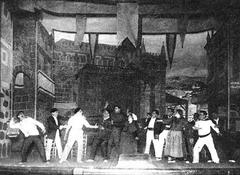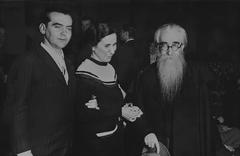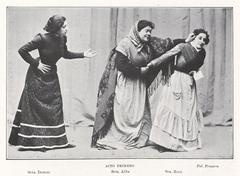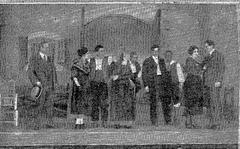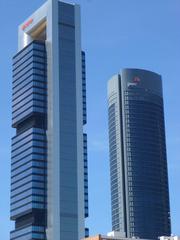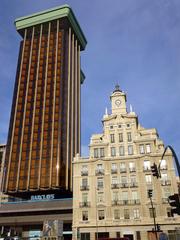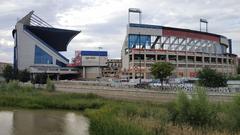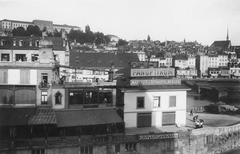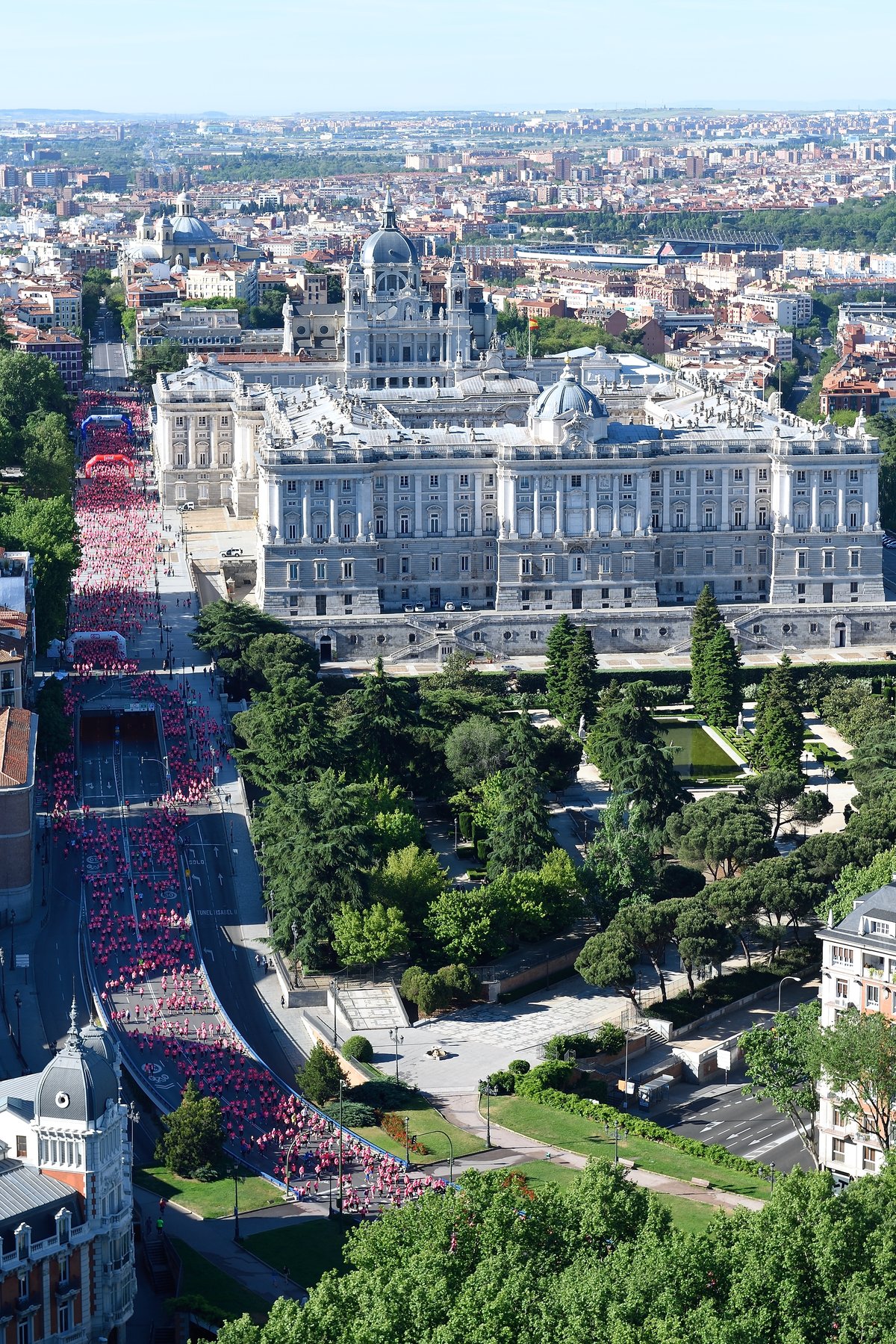
Visiting the Jardines de Sabatini in Madrid: Hours, Tickets, and Tips
Published Date: 18/07/2024
Introduction to Jardines de Sabatini
The Jardines de Sabatini, or Sabatini Gardens, are one of Madrid’s most compelling historical sites, offering visitors a serene retreat amidst the bustling city. Named after the renowned 18th-century Italian architect Francesco Sabatini, these gardens hold a unique blend of historical, architectural, and cultural significance. Established in the 1930s on the grounds of the former royal stables designed by Sabatini himself, the gardens were opened to the public in 1978 by King Juan Carlos I, marking a pivotal moment in the democratization of royal spaces in Spain (Patrimonio Nacional) (Madrid Tourism).
The neoclassical design of the Jardines de Sabatini is characterized by symmetrical patterns, geometric shapes, and meticulously manicured hedges. A central rectangular pond, flanked by statues and fountains, adds to the gardens’ tranquil and elegant atmosphere. These features not only make the gardens a visual delight but also provide a window into Madrid’s rich historical and cultural heritage. Visitors can enjoy free admission to this urban oasis, making it a budget-friendly attraction for both locals and tourists (Esmadrid).
Whether you’re a history enthusiast, a photography aficionado, or simply seeking a peaceful escape, the Jardines de Sabatini offer a multifaceted experience that caters to diverse interests. This guide aims to provide a comprehensive overview of what to expect when visiting the Jardines de Sabatini, including practical information on visiting hours, accessibility, nearby attractions, and special events.
Contents
- Introduction
- History of Jardines de Sabatini
- Origins and Early Development
- Design and Architectural Influence
- Historical Significance
- Visitor Information
- Jardines de Sabatini Visiting Hours and Tickets
- Accessibility
- Practical Travel Tips
- Nearby Attractions
- Best Time to Visit
- Photography Spots
- Special Events and Guided Tours
- Veranos de la Villa Festival
- Guided Tours
- Restoration and Preservation
- FAQ Section
- Conclusion
History of Jardines de Sabatini
Origins and Early Development
The Jardines de Sabatini, named after the Italian architect Francesco Sabatini, are a relatively recent addition to Madrid’s rich tapestry of historical sites. Although Sabatini himself did not design these gardens, they were constructed in the 1930s on the site of the former royal stables, which he had designed. This project aimed to enhance the aesthetic appeal of the Royal Palace and its surroundings as part of a broader urban renewal initiative.
Design and Architectural Influence
The design of the Jardines de Sabatini reflects a blend of neoclassical and formal garden styles, characterized by symmetrical patterns, geometric shapes, and meticulously manicured hedges. A large rectangular pond, surrounded by statues and fountains, serves as the central feature, adding a sense of tranquility and elegance. The influence of Francesco Sabatini is evident in the classical motifs like columns and balustrades that frame the gardens.
Historical Significance
The Jardines de Sabatini hold significant historical value, not only for their connection to Francesco Sabatini but also for their role in Madrid’s cultural and social life. During the Spanish Civil War (1936-1939), the area around the Royal Palace, including the site of the future gardens, witnessed significant turmoil. The post-war creation of the gardens symbolized a return to peace and normalcy.
Visitor Information
Jardines de Sabatini Visiting Hours and Tickets
- Visiting Hours - The Jardines de Sabatini are open daily from 9:00 AM to 9:00 PM. However, hours may vary on public holidays, so it’s advisable to check ahead.
- Tickets - Admission to the Jardines de Sabatini is free, making it an accessible destination for all visitors.
Accessibility
The gardens are wheelchair accessible and have well-maintained pathways, making them suitable for visitors of all ages and abilities.
Practical Travel Tips
Nearby Attractions
The Royal Palace of Madrid and the Almudena Cathedral are within walking distance, making it convenient to visit multiple sites in one trip.
Best Time to Visit
Early mornings and late afternoons are ideal for avoiding crowds and enjoying the gardens in a more peaceful setting.
Photography Spots
The central pond and the view of the Royal Palace from the gardens are popular spots for photography.
Special Events and Guided Tours
Veranos de la Villa Festival
This annual summer festival features a diverse array of performances, including music, dance, and theater, highlighting the gardens as a vibrant cultural hub.
Guided Tours
Various guided tours are available, offering deeper insights into the gardens’ history and design. Check the official website of Patrimonio Nacional for more details.
Restoration and Preservation
In recent years, the Jardines de Sabatini have undergone several restoration and preservation efforts, including the restoration of statues, replanting of hedges, and installation of modern irrigation systems. Managed by Patrimonio Nacional, these initiatives ensure the gardens remain a cherished part of Madrid’s cultural heritage.
FAQ Section
- What are the visiting hours for Jardines de Sabatini? The gardens are open daily from 9:00 AM to 9:00 PM, though hours may vary on public holidays.
- How much are tickets for Jardines de Sabatini? Admission is free for all visitors.
- Are the gardens wheelchair accessible? Yes, the Jardines de Sabatini are wheelchair accessible.
Conclusion
The Jardines de Sabatini are a testament to Madrid’s rich history and cultural heritage. Created in the 1930s, these gardens transformed a utilitarian space into a beautiful and serene retreat. Today, they continue to serve as a beloved destination for both locals and tourists, offering a peaceful escape in the heart of the city. Through ongoing preservation efforts, the Jardines de Sabatini remain a vibrant and integral part of Madrid’s cultural landscape.
For more information, visit the official website of Patrimonio Nacional.
Sources and Further Reading
- Patrimonio Nacional, n.d., Patrimonio Nacional
- Madrid Tourism, n.d., Madrid Tourism
- Esmadrid, n.d., Esmadrid
